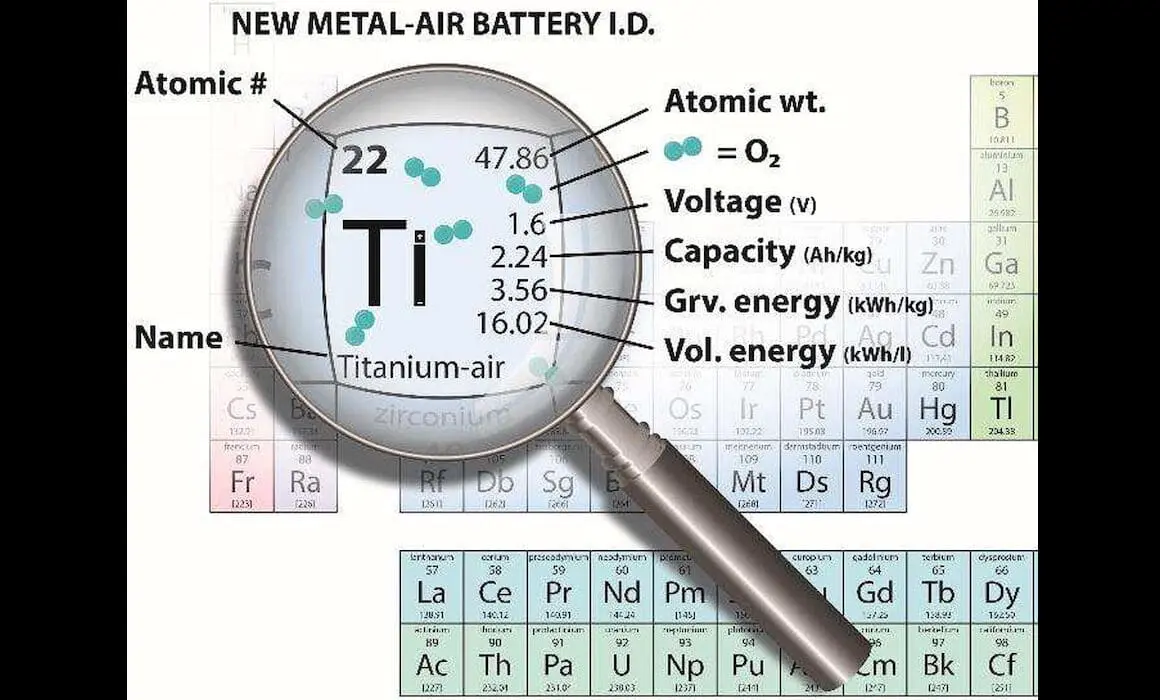The Titanium-Air Battery Gamechanger

Researchers from the Technion and the Forschungszentrum Jülich research institution in Germany have successfully tested a novel titanium-air battery. The novel battery could theoretically store up to three times more energy than standard zinc-air batteries, and since titanium is the ninth most frequently occurring material in the Earth’s crust, there are plenty of resources available to use in their creation.
The team tested the battery’s abilities by applying a liquid consisting of salt with a low melting point, known as ionic liquid (EMIm(HF)2.3F). Its theoretically achievable voltage is in a similar range to that of zinc-air batteries, with an average cell voltage of 1.2 volts and relatively high discharge currents of up to 0.75 mA cm-2 measured in experiments.
Metal-air batteries are able to achieve higher energy densities than common battery types, such as lithium-ion, since the contained metal reacts with oxygen in the air to release electrical energy without the need for containing oxygen within the battery. As a result, they are particularly useful when compact size is important, including in standard button cells in hearing aids, control modules, and sensors. Other applications for such batteries include large-scale stationary storage systems that use low-cost, common, and non-toxic materials. Titanium could also be a less expensive replacement for lithium.
The study was led by Professors Rüdiger-A. Eichel and Yair Ein-Eli from the Technion along with Dr. Yasin Emre Durmus from the Jülich Institute for Energy and Climate Research (IEK-9) at Forschungszentrum Jülich. Their findings were published in Chemical Engineering Journal.




